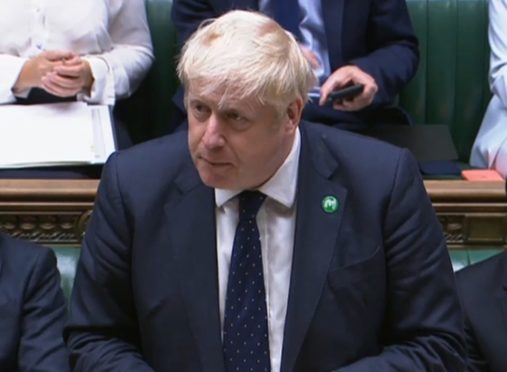The SNP’s Westminster leader and the Prime Minister have clashed in the House of Commons over plans to raise National Insurance to fund social care in England.
The government wants to raise National Insurance by 1.25 percentage points to help fund the NHS and adult social care to the tune of £36 billion over the next three years.
Boris Johnson says Scotland, Wales, and Northern Ireland will benefit from an extra £2.2 billion a year, which he claims is around 15% more than they would contribute through the levy, so will therefore create a “union dividend” of £300 million.
“While Scotland, Wales and Northern Ireland have their own system, we will direct money raised through the levy to their health and social care services” the PM says.

However in a heated exchange on Tuesday, Mr Blackford claimed the PM is seeking to introduce his own version of a “poll tax on Scottish workers” via the social care reforms.
Mr Blackford told MPs: “By raising this levy across the UK, the Tories are taxing Scottish workers twice – forcing them to pay the bill for social care in England as well as at home in Scotland.
“Let me tell you prime minister that health is devolved to the Scottish Government, the prime minister can get his mitts off our health system.”
What is the disagreement about?
The prime minister plans to increase National Insurance to fund social care reforms south of the border.
The tax power is held by Westminster, meaning it would apply across the UK.
This triggers extra payments for devolved governments to make up for the additional cost, but has lead to claims working families are being burdened while wealthier earners are not.
Ahead of the announcement the SNP were joined by a number of Conservatives against the plan, but backbench opposition had largely melted away by the time Mr Johnson made his announcement in the chamber.
How does National Insurance work?
National Insurance contributions are based on weekly financial thresholds, with 0% due on the first £184 earned, 12% on sums between £184.01 and £967, and 2% on remaining earnings.
According to the Office for National Statistics, the average weekly wage in Great Britain is £576, with a weekly National Insurance contribution amounting to £47.04 (8.16%).
So anyone whose primary earnings are above the £967 2% threshold, or just over £50,000 a year, ultimately pays a proportionately lower rate than those who have the bulk of their earnings in the 12% threshold.
As such, much of the criticism of the plan revolves around the unfair impact a National Insurance hike would have on young and lower income workers.
